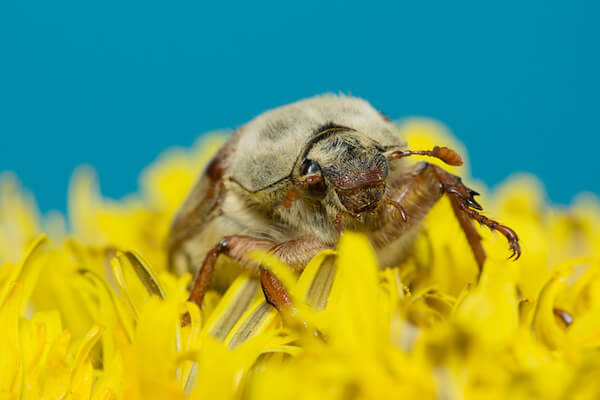
Pests to Look Out For
Gardening can be such a rewarding and exciting process. However, if animals are finding their way into your garden and ruining your efforts, it sure does not seem fun or enjoyable at all. The variety of pesky animals that enjoy spending time in your yard depends on the variety of plants that are planted there. The Florida landscape seems to be especially inviting for unwanted guests in the forms of deer, iguanas, insects, and other small lizards. Luckily, there are some tips that can help homeowners deal with the frustration that they bring with them and prevent further damage to landscapes.
Deer are herbivores, so naturally they are drawn to your delicious yard and garden, which is essentially a giant salad to them. Although deer are generally harmless, their population is growing and that means that they are feeding more rapidly on yards throughout your neighborhood. There are several ways to try and control the unwanted feeding of deer in your yard.
If there is a large deer population in your area, you may want to consider a fence. Deer get to the point where they will eat anything and if your entire yard is accessible to deer populations, everything planted is in a vulnerable position. If the deer grazing is not a huge issue but rather a nuisance, a frightening device may scare them off for a rather long period of time. There are propane cannons that have been designed to frighten deer by sending off a loud noise on a timer. Other options such as fireworks may do the trick as well, but be careful and handle responsibly.
If loud noises are not your thing, repellents are available and can be sprayed over areas that are getting a high traffic of deer visitors. Natural repellents are not meant to hurt the animal in any way, they are simply made of materials that give off a scent that deer stay away from.
Although iguanas are not native to Florida, enough of them have been imported as pets and then either escaped or been released that they have actually become a problem for homeowners due to their plant based diets. Iguanas and deer have surprisingly similar diets, and iguanas will feast on virtually anything growing in your yard. The difference however, is that iguanas enjoy basking in the sun after they have a large meal and when they bask on your sidewalk or patio, they leave a great deal of droppings. They are also not very friendly when it comes to pets and can be violent towards small dogs or cats if they feel threatened.
If iguanas heavily populate your yard or neighborhood, consider a few different options to reduce the damage they may inflict on your yard. The most important thing to remember is to never feed them or it will only increase their visits. Screens or protective covers can help shield them from getting into any patio areas, seawalls or docks. Surprise spraying iguanas with a mist of the hose can frighten them away without hurting them and if any iguanas nest in your yard it is crucial to remove the eggs safely so that the young iguanas do not hatch and call your yard home. It is also safe and legal to remove iguanas from your property because they are not protected under Florida Law. They can be easily captured in noninvasive cages after they are baited by fruit. There are wildlife care centers that are available for iguana release once they are captured.
Insects also prove to be an issue for homeowners when it comes to lawncare. They are especially pesky on grass and sod. There are several insects who live and feed in grass and can cause a great deal of damage. Worms, mites, and a variety of ants all have big appetites and could be planning a meal around your lawn. If you notice that your lawn is not looking as lush or lively as usual, or has some patchy spots, it is very possible that insects have taken a liking to it. Using an eco friendly insecticide or insect killer is your best bet. Do not wait too long or the pests will do a significant amount of damage.
The best thing to do no matter what the pest is, is to act quickly so that they do not cause too much harm to your lawn and plants. The faster they are handled, the faster you can work on reversing the damage and improving the health of your beautiful Florida yard.